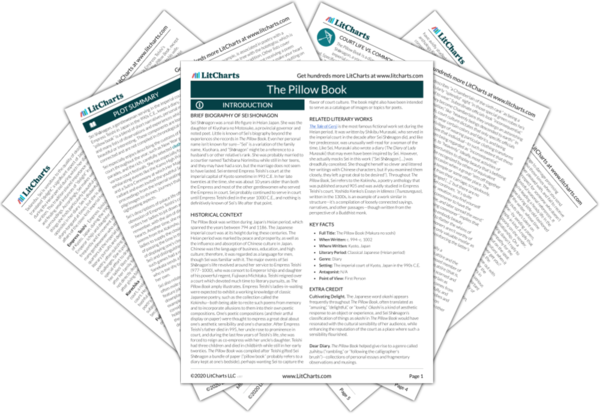Previous
Sections 248–259
|
Previous
Sections 248–259
|
The Pillow Book: Sections 260–297 Summary & Analysis |
Next
Sections S1–S29
|


Upgrade to unlock the analysis and theme tracking for all of The Pillow BookThe Pillow Book!
Get LitCharts A+